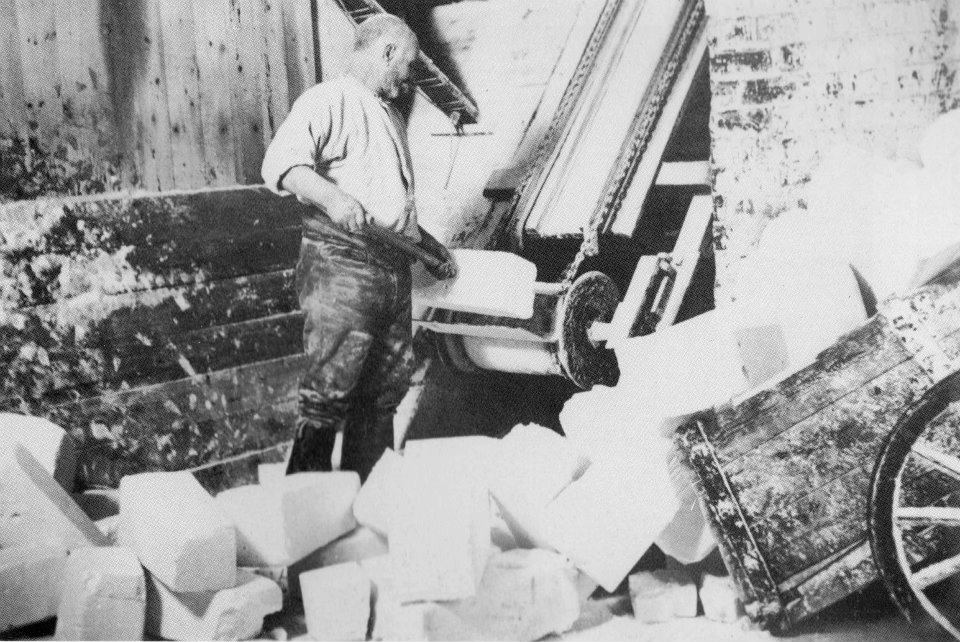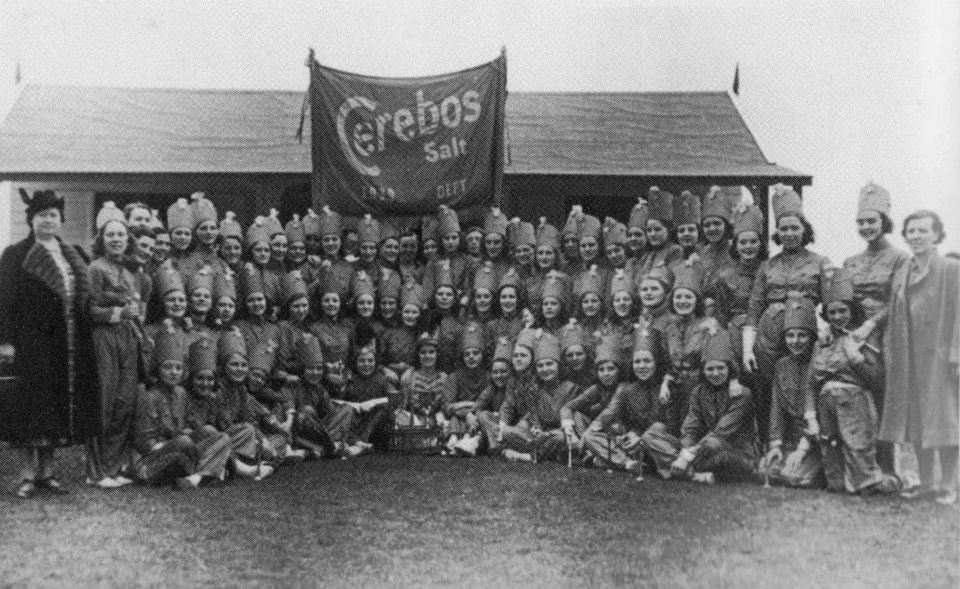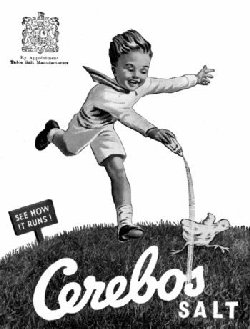CEREBOS
CEREBOS (table salt)
Ideal for the table and all domestic uses
Nett weight 12 ozs
Peso neto 335 gramos
Manufactured in England
CEREBOS LIMITED LONDON
Containing not more than one part per centum of magnesium carbonate
Keep in a very dry place
See how it runs
trade mark
known and appreciated throughout the world for its never - varying excellence.
patent pourer inside
Obrigado Miguel Frazão
Ideal for the table and all domestic uses
Nett weight 12 ozs
Peso neto 335 gramos
Manufactured in England
CEREBOS LIMITED LONDON
Containing not more than one part per centum of magnesium carbonate
Keep in a very dry place
See how it runs
trade mark
known and appreciated throughout the world for its never - varying excellence.
patent pourer inside
Obrigado Miguel Frazão
HISTÓRIA


Cerebos Salt Works was located just on the outside of Hartlepool in the village of Greatham.
In 1894 nearby Bolckow Vaughan & Co were drilling for water to supply their Vulcan works and discovered a 100m thick salt seam at 1300m depth. Soon after salt production started and would last at the site for over 75 years.
Initially starting life as the Greatham Salt and Brine Company, it was soon bought out in 1903 by Cerebos, a wholly owned subsidiary of Rank-Hovis McDougall. Primarily the site was used to produce salt for consumption rather than chemical or industrial use.
This however didn’t prevent the site being a target for bombing missions during the Second World War, often causing the people of nearby Greatham to be herded into Greatham Hall bomb shelters. The site was hit by two or three high explosive devices on the night of the 7th of July 1942, causing extensive damage to the south end of the site.
In 1966 the Sharwood brand, also part of Rank-Hovis McDougall, started taking over parts of the site for curry and chutney production as the salt production output decreased. Ramping up to include soups and paste spreads a year later, increasingly the production of the site moved more to other foodstuffs apart from salt, until in 1971 the last remaining brine pump at the site was decommissioned and the site ceased salt output. By 1968 RHM had taken over the site entirely and had many of their brands such as Bisto, Atora, Capri-Sun and others rolling off the production lines at the site. At its peak the site was employing up to 1,000 people on site at any one time.
By 2002 production of some of the brands had slumped due to lack of consumer demand, and the already dwindling staff of 176 people by that point was finally laid off and the site closed so that the company could focus production at their plant near Manchester.
Initially there was some interest in renovating the site into a modern office complex, but its remote location and the fact that the adjacent Greatham rail station had closed in the 1980′s meant that interest was not fruitful, and the site has remained derelict ever since. The site has seen some use for police training and is adjacent to an active signal box so there is still regular activity around the site.

Cerebos Jazz Band 1929

Cerebos works extension in 1936









Comentários
Postar um comentário